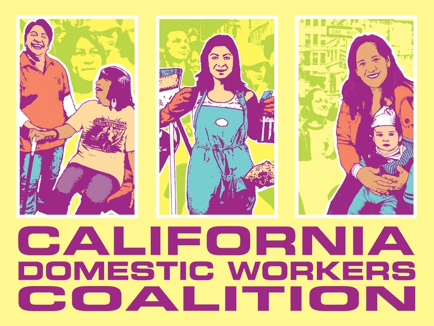The Davis Vanguard |
On Sept. 30, Governor Newsom turned his back on California’s estimated 300,000 privately employed homecare providers, house cleaners, and nannies, when he vetoed Senate Bill 686. Rather than right a historic wrong and end the exclusion of household workers from California’s Occupational Health and Safety Law, Newsom grasped for excuses, leaving the lives and health of this largely immigrant women of color workforce unprotected.
Instead of giving the real reason for his veto, Newsom claimed to be protecting us, domestic employers, especially low income homecare employers. We both employ people in our homes that make our lives possible and we recognize that our homes become workplaces when we hire people to clean them or provide care for us or our families.
For me (Jessica), I’ve been acutely aware of my role as an employer since I moved from my parents’ house at age 18. As a wheelchair user, home attendants are fundamental to my independence, assisting me to get dressed and ready for the day, so I can work and be active in my community. These valuable staff who make my life possible deserve to have a safe work environment. But it’s not always easy to be an employer—SB686 would have given me and other disabled employers needed guidance to set up our homes safely.
, Eileen, have relied on cleaners for decades, beginning when my son was a toddler and both my spouse and I were starting their careers as professors. I soon discovered I have bad allergies to dust, grass, and other irritants, which improved immensely after the careful and knowledgeable work of house cleaners. I came to understand that their working conditions were my living conditions, and I have a responsibility to make sure those conditions do not put them at risk.
In his veto statement, Governor Newsom stoked employer fears by naming the largest possible Cal/OSHA fines, when the reality is that Cal/OSHA’s existing penalty structure allows for reductions and full waivers based on the severity of the violation, size of the employer, good faith efforts, and violation history of the employer.
Newsom also claimed the bill would subject private employers to the same regulations as business. Yet SB 686 was specifically crafted for employment within the home, and was based on the recommendations by a 2022 Cal/OSHA committee that we both sat on, alongside domestic workers, fellow domestic employers and health experts. The legislation also provided time for Cal/OSHA to integrate those recommendations into industry-specific guidance through their regulatory process.
Ending the exclusion of domestic workers from health and safety protections is the necessary first step to beginning this process.
